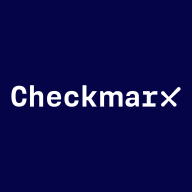

Find out in this report how the two Container Security solutions compare in terms of features, pricing, service and support, easy of deployment, and ROI.
Initially, not having them resulted in an unoptimized solution. However, with these tools in place, we witnessed a reduction of costs by approximately a third—if it was $100 beforehand, we brought costs down to $25.
We have cost explorer available, and a bill forecast based on usage allows us to determine whether resources are underutilized or overutilized.
It's a fast deployment, with very good documentation, and it's really helpful.
We didn't need to manage etcd and those control management tools; it's totally handled from the AWS side, making it very beneficial.
I believe there should be a recovery solution available for at least a few hours so that we might bring it back.
They will set up a call, guide us, or provide solutions regarding integration with AWS or Amazon EKS.
The ability to scale based on requirements by deploying additional containers is a strong point for Kubernetes.
This allows us to scale our applications or APIs as needed, offering reliability through the automation of scaling processes.
If any node is not ready, the cluster autoscaler ensures that it is removed from the AWS auto-scaling group and replaces it with a new node in the cluster.
There are multiple availability zones in the regions, meaning no single point of failure.
The control plane is quite stable in Amazon EKS, and I find it to be 100% available.
We haven't faced any challenges, and it consistently delivers on its committed SLA.
I would rate the stability of this solution a nine on a scale of 1 to 10 where one is low stability and 10 is high.
Simplifying these will enable more people, not just those with strong foundational knowledge, to work effectively with these services.
Amazon EKS can be improved by having the maintenance of Kubernetes versions managed better, as everything is handled by the Kubernetes team and possibly a separate team at AWS.
Adding logging would be a valuable improvement.
It could suggest how the code base is written and automatically populate the source code with three different solution options to choose from.
The EKS service itself is free, but you will incur costs for the VMs used as nodes in that cluster.
If you want to monitor costs effectively, applying separate tools and acting accordingly in advance is essential.
The pricing structure is beneficial for large companies who pay for what they use, but it is not affordable for startups.
The most beneficial aspect of Amazon EKS is that it helps manage the Kubernetes master node, so I don't need to maintain the master node, including tasks like upgrading.
The main benefits that I received from using Amazon EKS are that it is a managed cluster and offers simplicity.
By default, if you just install Amazon EKS, you can deploy your application, but to have it enterprise-ready, you have to configure a number of other things that will boost productivity.
My experience with the initial setup of Checkmarx One is straightforward; it is not complex compared to other tools that I have tried.
| Product | Market Share (%) |
|---|---|
| Amazon EKS | 0.2% |
| Checkmarx One | 2.1% |
| Other | 97.7% |


| Company Size | Count |
|---|---|
| Small Business | 32 |
| Midsize Enterprise | 18 |
| Large Enterprise | 38 |
| Company Size | Count |
|---|---|
| Small Business | 30 |
| Midsize Enterprise | 9 |
| Large Enterprise | 38 |
Amazon Elastic Kubernetes Service (Amazon EKS) is a fully managed Kubernetes service. Customers such as Intel, Snap, Intuit, GoDaddy, and Autodesk trust EKS to run their most sensitive and mission critical applications because of its security, reliability, and scalability.
EKS is the best place to run Kubernetes for several reasons. First, you can choose to run your EKS clusters using AWS Fargate, which is serverless compute for containers. Fargate removes the need to provision and manage servers, lets you specify and pay for resources per application, and improves security through application isolation by design. Second, EKS is deeply integrated with services such as Amazon CloudWatch, Auto Scaling Groups, AWS Identity and Access Management (IAM), and Amazon Virtual Private Cloud (VPC), providing you a seamless experience to monitor, scale, and load-balance your applications. Third, EKS integrates with AWS App Mesh and provides a Kubernetes native experience to consume service mesh features and bring rich observability, traffic controls and security features to applications. Additionally, EKS provides a scalable and highly-available control plane that runs across multiple availability zones to eliminate a single point of failure.
EKS runs upstream Kubernetes and is certified Kubernetes conformant so you can leverage all benefits of open source tooling from the community. You can also easily migrate any standard Kubernetes application to EKS without needing to refactor your code.
Checkmarx One is an enterprise cloud-native application security platform focused on providing cross-tool, correlated results to help AppSec and developer teams prioritize where to focus time and resources.
Checkmarx One offers comprehensive application scanning across the SDLC:
Checkmarx One provides everything you need to secure application development from the first line of code through deployment and runtime in the cloud. With an ever-evolving set of AppSec engines, correlation and prioritization features, and AI capabilities, Checkmarx One helps consolidate expanding lists of AppSec tools and make better sense of results. Its capabilities are designed to provide an improved developer experience to build trust with development teams and ensure the success of your AppSec program investment.
We monitor all Container Security reviews to prevent fraudulent reviews and keep review quality high. We do not post reviews by company employees or direct competitors. We validate each review for authenticity via cross-reference with LinkedIn, and personal follow-up with the reviewer when necessary.